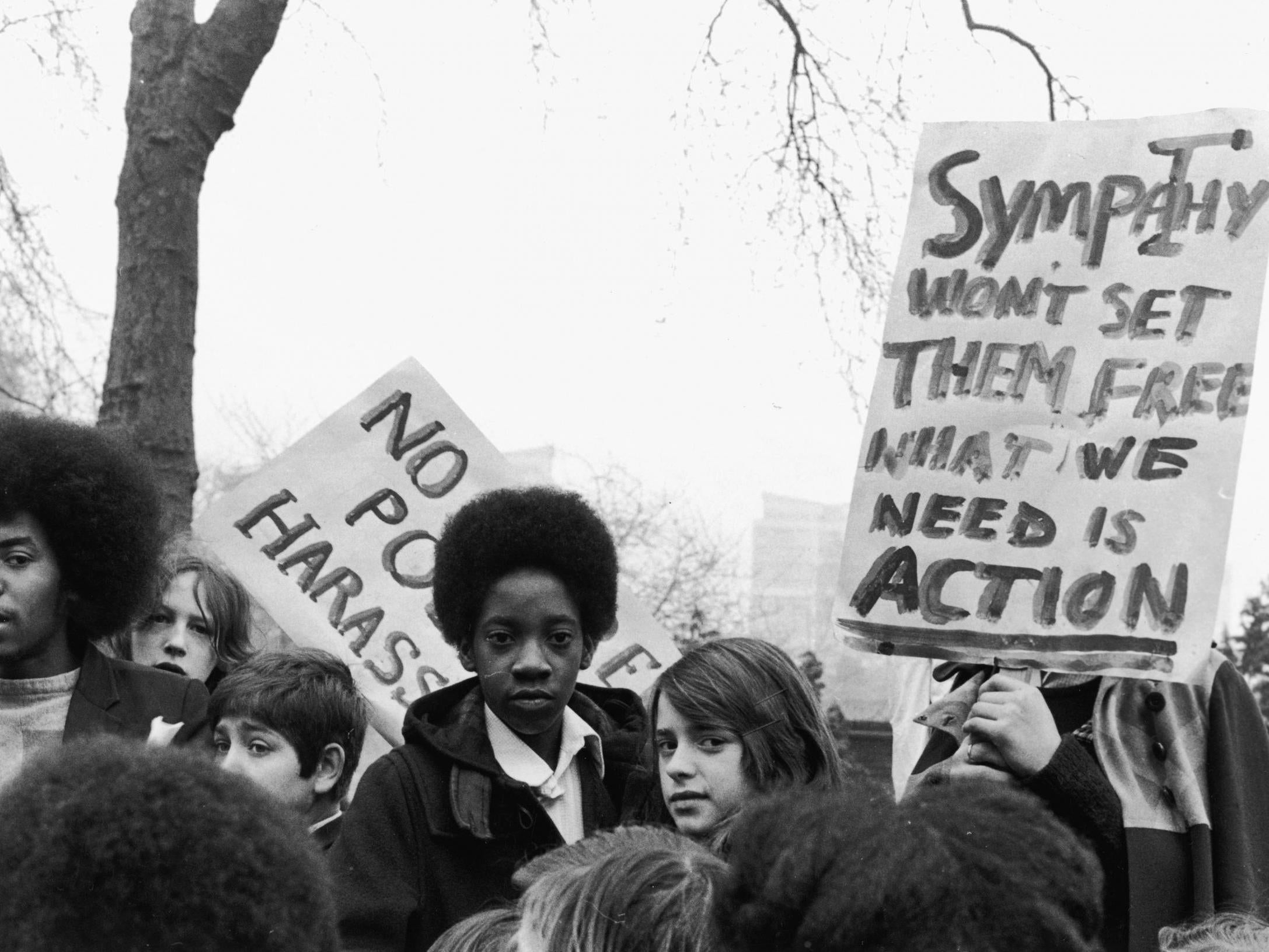Black History Month should be a time for action – and white people, that includes you too
I want to see people engage with their friends about how they can be better allies, or, in the workplace, holding meetings about how to redistribute and rebalance leadership jobs and cultural power


If done right, Black History Month in the UK can feel like Christmas in the truest sense: Full of joy, activities, a gathering of people you don’t always see, nostalgia and, much like my experience of Christmas, an underlying sense that something doesn’t feel quite right.
That’s not to say I don’t enjoy the multitudes of events on offer during October, or the excuse to celebrate and lift up my black siblings, or even the (not without fault) black magazine covers I may get to experience more of in October (guilty as charged); I like seeing black folk in full gloss.
But whether it’s the relegation to one month of the year, or black people being invited to gatherings with the current government (side-eye), or, as is the focal point of this article: white people’s engagement with it – something feels cynical underneath it all. It feels odd, and maybe counter-intuitive to talk about white people during a month for blackness, but honestly, I haven’t thought about white people in a while – and I have the time.
Currently, most white people have two forms of engagement with Black History Month, and therefore, by extension, black culture and problems. They either sit in group A: ignore and do not engage. Or B: reflect and signal boost. The latter camp is usually seen as inherently active and positive. This may mean sharing photos of black cultural figures, retweeting articles written by black people, or possibly going to events during Black History Month and learning about our history. And all of this is a very good use of time. Yet my issue is, option B never turns into something more substantial. Time and time again we see white people reach limited engagement, be congratulated for that minimum, and not push for something more. So often, white people’s engagement with black history stops before it leads to their interrogation of their own history, and with that, complicity.
What do I mean by something more substantial? If we continue to just share, look back, or gaze into black history – even with good intentions – our engagement with it remains stagnant. Ultimately, Black History Month is not just about our history, but also about our current and very real situation of personal and structural racism. Racism and anti-blackness is not a thing that has been eradicated. It is active, affecting, and in many ways, killing black people.
Therefore, our response, or in this case – white people’s response – to black history, racism and blackness in Britain cannot be stagnant either. It must be active. It must push. I do not want us to remain in a state of mere acknowledgement, but what does it mean to be in action? How many are using Black History Month as a time to recommit to anti-racist work? Or, in some cases, commit to being more involved in anti-racist work? I would love to see Black History Month as a time when not only black folk are celebrating, reflecting, working but when non-black people also use the month as a time to interrogate their relationship with race, their complicity in the system, and how to be an agitator of it.

The truth is, in my belief, although we can and have historically moved mountains on our own, the work of anti-racism and dismantling structures is a holistic effort, needing a holistic squad. It should not just be black folk invested in our histories and futures, but rather a collective investment in understanding and accounting for history and present racism – and working hard to end it.
I want to see a Black History Month where white people are setting up WhatsApp groups with their white friends about things other than Sex in The City recap episodes and instead how they can be better allies. Or in which white people in the industries I work in hold active meetings during the month, talking about how to redistribute and rebalance leadership jobs and cultural power. Or maybe white teachers and staff not just sharing famous black authors or figures, but also spending time seeing what their schools attainment levels are for Black students, or challenging racially coded forms of discipline. I guess what I’m trying to say, is to so many black folk, grappling with racism cannot be done without a sense of urgency, and this annual observance can and should be approached in the same way.
Each Black History Month, I take the first day of it to sit with myself and reflect on my relationship with my mother, my siblings (both blood and chosen) and those I do not know. I choose to recommit to thinking about my own responsibilities, privileges and relationships – and then I try to act and do better. Chatting with many of my black friends, their approach is similar. But I can’t help but wonder what this country would feel like if everyone, not just those oppressed by race, were working as actively to change it.
Join our commenting forum
Join thought-provoking conversations, follow other Independent readers and see their replies
Comments
Bookmark popover
Removed from bookmarks